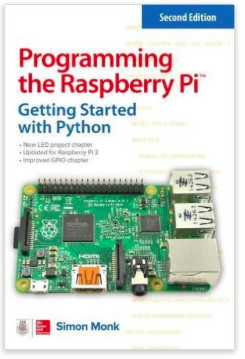 This PiCAN2 DUO board provides two independent CAN-Bus interfaces for the Raspberry Pi 2/3. The board utilizes the Microchip MCP2515 CAN controller with the MCP2551 CAN transceiver. Connections are made via a 4-way screw terminal. The board also comes with a 5v 1A SMPS (Switch Mode Power Supply) that powers the Raspberry Pi from a 6 VDC to 30 VDC power supply range to suit automobile and industrial applications..
This PiCAN2 DUO board provides two independent CAN-Bus interfaces for the Raspberry Pi 2/3. The board utilizes the Microchip MCP2515 CAN controller with the MCP2551 CAN transceiver. Connections are made via a 4-way screw terminal. The board also comes with a 5v 1A SMPS (Switch Mode Power Supply) that powers the Raspberry Pi from a 6 VDC to 30 VDC power supply range to suit automobile and industrial applications..The board supports an easy-to-install, easy-to-manage SocketCAN driver. Programming can be accomplished in C or Python, and there are many programming samples plus source code.
Features
- CAN v2.0B at 1 Mb/s
- High speed SPI Interface (10 MHz)
- Standard and extended data and remote frames
- CAN connection screw terminal
- 120Ω terminator ready
- Serial LCD ready
- LED indicator
- Four fixing holes, comply with Pi Hat standard
- SocketCAN driver, appears as can0 and can1 to application
- Interrupt RX on GPIO25 and GPIO24
- 5v 1A SMPS to power Raspberry Pi and accessories from screw terminal
- Reverse polarity protection
- High efficiency switch mode design
- 6 VDC to 30 VDCX input range
Programming the Raspberry Pi – Getting Started with Python
Learn to create inventive programs and fun games on your powerful Raspberry Pi―with no programming experience required. This practical book has been revised to fully cover the new Raspberry Pi 2, including upgrades to the Raspbian operating system. Discover how to configure hardware and software, write Python scripts, create user-friendly GUIs, and control external electronics. DIY projects include a hangman game, RGB LED controller, digital clock, and RasPiRobot complete with an ultrasonic rangefinder.
- Updated for Raspberry Pi 2
- Set up your Raspberry Pi and explore its features
- Navigate files, folders, and menus
- Write Python programs using the IDLE editor
- Use strings, lists, functions, and dictionaries
- Work with modules, classes, and methods
- Create user-friendly games using Pygame
- Build intuitive user interfaces with Tkinter
- Attach external electronics through the GPIO port
- Add powerful Web features to your projects






